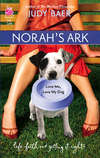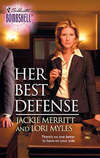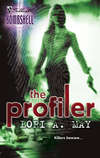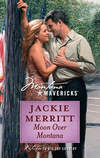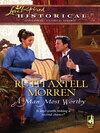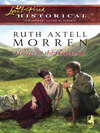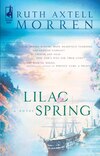Kitabı oku: «Wild Rose», sayfa 2
“No?” His voice reached her. “Seems to have concerned you the other day.”
So, he had heard. She could feel the blood heating her face up to the roots of her hair. She kicked at the tough grass. “Folks should mind their own business.”
“What they ought to do and what they do are frequently two different things.” He tipped his hat to her. “I want to thank you for your kind if unnecessary defense of me.”
Wrestling with something inside herself, Geneva gave an abrupt nod and turned to begin her trek back to the gate.
She’d spent too many years protecting her own hide to know how to reach out to anyone. The captain would have to learn to sink or swim on his own. She’d help him with his garden. That was all. She owed him that much.
Caleb sat on the veranda, staring out at the silvery sea, the hot coffee cup enveloped by his hands. He couldn’t see the horizon this morning. It was obscured by the milky white fog that lay offshore and high overhead.
The sun was already visible, its strong yellow orb promising to burn through the white film shrouding but not obliterating it. He listened to the movement of sea against rock, its sucking, rushing sound ceaseless.
He’d been listening to it off and on all night.
Finally the nausea he had felt since rising began to ebb. He took a cautious sip of coffee, feeling as if he were just finding his sea legs.
In truth, he knew his physical condition was the result of more than rising too early and sleeping too little over several days.
He ventured another sip of the scalding coffee, needing something—anything—to wash out the vile taste in his mouth.
Lost in thought again, the knock didn’t penetrate his consciousness the first time. It was only at the second knock that it intruded like something at the periphery of his vision gradually taking shape.
He got up slowly at the third knock, his head shifting like sand, his body weak and wobbly like one who hasn’t eaten in a few days.
Caleb walked back inside, following the echo of the now silent knock. His footsteps reverberated against the polished wood floor as he walked through the wide living room, into the dining room, and finally reached the kitchen. He approached the door leading out into the shed and opened it a crack.
The tall woman wearing men’s attire—denim overalls and a straw hat—was just turning to leave.
He opened the door wider. “Good morning,” he said, immediately clearing his throat as he heard the raspy sound of the syllables emanating from it.
She nodded by way of greeting. “Brought you some loam.”
He frowned. “Loom?” He repeated the word the way she’d pronounced it.
“Topsoil. And dry manure,” she added.
“Oh.” Was this supposed to mean something to him?
The way she waited, just staring at him, made him conscious of his appearance. His fingers touched the collar of his shirt, and he realized the top buttons were undone.
She shifted in her boots. “I’ll bring the seedlings ’round as soon as we work in the loam. Thought you’d want to get started early with the planting.”
He finally nodded in understanding, remembering her offer of seedlings. Somehow it had slipped his mind amidst the backbreaking labor of the last two days.
“And so I do.” He yawned. “Excuse me. I didn’t get to sleep until late.” When she said nothing, he asked, “What time is it anyway?”
He saw her blink at his question. She was younger than he’d imagined. In her men’s getup and her clipped sentences, she had seemed ageless to him.
Not waiting for her to answer, he pulled out his watch. “Eight o’clock. It feels more like daybreak.” He looked at her questioningly. “Don’t you have your own work to do? I don’t want to keep you from it.”
She shook her head. “Already weeded and watered this mornin’.”
He nodded. “Of course.” If her speech was anything to go by, she wasn’t a person to waste time. “I suppose if I am to accept your generous gift, I should at least know your name. You seem to know mine.”
All he understood of the mumbled words was “Neeva Patterson.”
“Pleased to meet you, Miss Patterson.” He took a last swallow of coffee. “Well, let’s be at it, then.”
He followed her out into the yard. The morning was still cool and he shivered slightly in his thin shirt. She marched ahead of him, straight toward the garden patch. Once there, she looked it over like a general reviewing his troops.
She turned to him. “What made you decide to turn your hand to gardening?”
“Sheer boredom.”
As if finding no response to that, she pointed to the wheelbarrow. “We’ve got to spread this over the garden and then use the fork to dig it in deep. I’ll empty it out and go bring some more. You’ll need to cover the garden good.”
As she reached for the handles of the barrow, Caleb came alive, realizing she’d meant what she’d said the other day about helping him. He got to the handles first and flipped the contraption over.
Then he turned toward the barn. “I’ll go get the shovel and fork,” he said over his shoulder.
It was after noon before Geneva judged the soil ready for planting. She stood back from where she had been working the manure into the soil with her fork. “Reckon we can rake it smooth now.”
The captain stopped his work at once, and she wondered whether he was as glad of the respite as she.
She hadn’t liked his pallor this morning. She’d kept telling herself it came only from lack of sleep, but being out in the sunshine hadn’t improved it. Now his paleness was overlaid with a sheen of perspiration.
The noonday sun burned down on their backs. They’d spent the morning carting manure and compost from her yard and forking it into his newly tilled garden. The captain hadn’t even stopped to drink a dipper of water. The back of his shirt was wet, and every so often he’d stop to swat at the blackflies that hovered around him in a cloud and remove his hat to wipe his brow with a handkerchief, or just straighten up, as if his back pained him.
He worked steadily, almost as if he was trying to prove something, but she couldn’t fathom what a gentleman like himself wanted to prove by bending over a garden patch.
Whatever the reason, she admired him for it. He had grit. Not like her pa, who’d bullied her ma all the time she was alive, but when she was gone, he’d just given up. Not all at once, but gradually, taking to the bottle until he was no longer fit to carry out the logging work that was his livelihood. One day they’d carried his body home after he’d slipped from a log into the rushing river on a spring log drive….
Geneva shook away the memories and sneaked another peek at the captain. She bit her lip to keep from voicing her concern. She’d had long years of practice keeping silent. The captain had made it clear this morning that he was not interested in chitchat.
Her own throat felt parched and her belly empty. She leaned against her rake. “I think we oughtta quit for dinner.” Before he could refuse, she added, “We can plant the seeds this afternoon, but it’s not a good idea to plant the seedlings in full sun. Best thing is to set them tomorrow morning, early.”
He considered a moment, looking over the neatly tilled plot. Finally he gave a short nod, and Geneva breathed her relief.
She gave a doubtful look at the seedlings. “I don’t like setting everything out all at once, but guess it can’t be helped, it being so late for your first planting.”
“What do you mean?”
“All your stem vegetables should be planted when there’s a moon, and all the root crops, ’cluding your taters, when it’s dark.”
He gave the little plants, which were already beginning to droop, an uninterested look. “I don’t think it’ll make much difference to these plants one way or another. They should be grateful just to be planted.” He gave one of the pots a kick.
Instead of showing outrage, Geneva smiled. The contrast between the sweat-stained man before her and the polished gentleman who’d helped her on the wharf was too great.
He caught her smiling at him and frowned. “What’s so funny?”
“Nothing.” She pinched her lips together. “I’m just glad those seedlings are hardy things.”
He looked at her for a second without reacting, then slowly he smiled. Her own lips relaxed in answer. Suddenly she felt like his partner in the garden.
“You’ve helped me more than I had any right to expect,” he said. “The least I can do is offer you some dinner.”
She stared at him, too startled by his invitation to answer.
“What’s the matter? Have I offended you?”
She shook her head. How could she explain it to him? To eat at someone’s table was truly to be accepted as his equal. He didn’t know what he was offering. Captain Caleb Phelps III, son of a Boston shipping magnate, dining with Salt Fish Ginny, pariah of Haven’s End? No, she’d spare him the humiliation. He was suffering enough at the hands of the villagers with his own troubles. She wouldn’t add to them.
With a heavy heart she said, “Much obliged, Cap’n, but I better be getting back. Got to feed Jake.”
“Jake?”
“My dog,” she added.
“Certainly. Well, perhaps another time.” He began picking up the tools, as if the invitation was already forgotten.
She hurried to help him, dumping the smaller items into the wheelbarrow. “I’ll just keep my things in your barn, if you don’t mind. That’ll save hauling everything back tomorrow.”
“You won’t need them yourself?”
She shook her head. “Not for a couple of days, anyhow.”
He pushed the wheelbarrow while she carried the long-handled implements toward the open barn door. He showed her a space inside where she could set the things, then went back to the garden for the remaining tools. Geneva took a turn about the barn while she waited for his return. She wanted to thank him again for the invitation.
She shook her head. No one in Haven’s End had ever invited her to eat. Even when her ma died, and then her pa, her nearest neighbor had brought a few covered dishes, but no one had invited her over.
They’d tried to force her to the Poor Farm when she’d been left with no living relatives, but she’d had none of that. She’d fended off the town do-gooders with the help of her pa’s rifle and hounds. Since then, she’d been pretty much left to herself.
Geneva kicked at the wisps of hay on the wooden floor, trying to understand how Captain Caleb could treat her the same as he would one of his own world.
She reached the doorway leading to the shed that connected the barn to the house. There in the dim corridor sat a wooden crate. Its yellow slats of new wood made it stand out.
Geneva stepped back when she saw what it contained.
The crate was filled with empty bottles, stacked every which way, right side up, upside down, sideways. The sickly sweet smell of liquor reached her nostrils. She knew that odor well. It had lingered for months in her own one-room house after her pa died. Geneva held her stomach, feeling as sick as if she’d drunk the contents herself.
Chapter Two
Caleb swung the scythe back and forth across the lawn at the side of the house. It had taken him the whole morning to learn to wield it properly, but now he began to see some progress on the grass that reached his knees and gave the house a derelict appearance. Just like its owner, his mind echoed. He glanced down at his work clothes—denim trousers and rough cotton shirt, its sleeves rolled up on his forearms, revealing the undervest beneath—what would his father say of him now?
Nothing that he hadn’t heard his whole life.
Caleb abandoned that line of thought and concentrated on his strokes. He hadn’t had such a workout since he’d climbed the ratlines of a ship. He turned to look with pleasure at the swath behind him, ignoring for the moment the much larger portion that remained to be cut.
Just then, he saw his neighbor coming down the road toward his property. Caleb wiped his brow with his bandanna, wondering what the strange Miss Patterson was coming to see him about now. He hadn’t spoken to her in over a week. Occasionally he’d glimpsed her at her tasks, up beyond the field and trees that separated their two properties or out on her boat, but she’d made no more silent ventures into his territory since the day she’d helped him prepare the soil for planting.
The two of them had worked hard that day. Caleb chuckled, remembering how he’d felt when she first appeared at his door. He’d about forgotten her promise of seedlings.
Working in a field in the full sun was not a remedy he’d recommend to anyone after the amount of alcohol he’d consumed the evening before. But he didn’t let on about his physical condition, though he suspected her sharp black eyes didn’t miss much.
He watched his neighbor open his gate now and wondered what sage advice Miss Patterson was going to offer him on this occasion. At least he knew her name properly. He’d found out the last time he’d been to the village.
She was making her way toward him with her purposeful stride. Did she ever wander aimlessly?
She’d probably take one look at his garden and make a dour prophecy of doom. At least the seedlings had survived his inexperienced planting; several rows of seeds and the quartered potatoes with their eyes had sprouted as well. Except for that one row of beans, everything had looked promising to him this morning. Now he wasn’t so sure. His plants began to take on a thin and sparse appearance as he tried to picture them through Miss Patterson’s experienced eyes.
“Morning.” She wasted no excess words in greeting.
Caleb leaned against the scythe and touched his hand to his hat brim. “Good morning to you, Miss Patterson.” She gave him a sharp glance, as if his words held some double meaning. He returned her look blandly. “What can I do for you?”
“Came to see how the seedlings were doing.”
“Just getting around to worrying about their fate?”
She flushed at that and looked away from him. “I been busy. Couldn’t make it back the other day.”
“You were under no obligation. I am grateful enough for all your help.”
“Still, it wasn’t right. I should’a finished what I begun.”
“Shall we have a look?” He invited her to go before him with a gesture of his hand.
Giving an abrupt nod, she turned and led the way to his garden, saying along the way, “You can set out seeds every week for another couple o’ weeks. That’ll give you crops right through the summer and into the first frost.”
When she got to the plot, she walked the length of it, silently inspecting the inch-high rows of peas, the tiny pairs of leaves on the sprouted radish and beet seeds, the feathery carrot tops, the pale gray-green of the cabbage and turnip sprouts. She nodded at the taller seedlings she’d given him to transplant from her own supply, which showed a few new leaves. Caleb hadn’t felt so nervous since holding out his slate for his tutor’s scrutiny.
“You water ’em when they’re dry?”
“Yes, miss.”
She gave him another glance, then bent down to pull out a thin weed Caleb could have sworn hadn’t been there that morning. “Hoe around the bigger plants after it rains?”
“I will now.”
Then she came to the pole beans. She squatted down beside them and took one little stem between her thumb and forefinger. It was thick and green, but where its two first leaves should have been was a shriveled, brown stump. Before Caleb could offer any explanation, any denial that he’d treated these seeds with any less care than the others, she pronounced her verdict.
“Cutworms.”
The word conjured up an image of a pair of shears going through all his rows, hacking the tender plants to shreds.
“We’ll have to replant ’em. This time we’ll sprinkle some wood ashes all along the rows. If that don’t do it, I’ll mix up a mess of cornmeal and molasses. That should keep ’em off. Lucky they haven’t gotten to your other plants.” She stood once more, thrusting her hands into her back pockets. “Everything else is coming up fine. You did a good job planting,” she acknowledged.
She didn’t give him much chance to enjoy the sense of victory that filled him.
“If you notice anything else eating the leaves, let me know.”
“Yes, ma’am,” he answered automatically.
Again she narrowed her eyes at him, as if suspicious of his tone. When she didn’t say anything more, Caleb tried to think of something to add. For some reason, he didn’t want her to leave just yet. Up to now, he’d avoided all company.
But he was intrigued. Perhaps it was because she seemed as content to leave him alone as he was to be left alone. Or perhaps it was the fact that she’d defended him that day in the store.
He still wanted to know why.
When she started walking away from the garden patch, he spoke up. “I’m thinking of buying a boat. Know anything of Winslow’s Shipyard?”
She nodded. “Don’t think much of old man Winslow, but young Silas’ll build you a good craft. He’s got a gift.”
“A gift?”
“It’s in his hands.” She looked briefly down at her own dirt-stained ones. “Anything he builds is light, easy to handle, seaworthy. He won’t charge you much for a small vessel. What are you looking at?”
“Nothing too big. Something I can handle myself. I noticed your little craft. She serves you well. Where do you take her?”
He couldn’t tell whether she was pleased or not by the compliment. “Up and down the coast. She’s just a double-ender, but that’s all I need.” She nodded. “Silas built her for me. In his spare time.” She made a sound of disgust. “Winslow wouldn’t let him waste his time on a little peapod for the likes o’ me. Farmers usually build their own. Folks use ’em for fishing and some lobstering.”
“I’ll have to see him. I don’t believe I’ve ever met him, although Phelps Shipping has commissioned the Winslow Yard for schooners.”
“Silas has been with Winslow for a long time. Ever since he was a boy. Apprenticed with him. He isn’t from these parts. Comes from one of the islands—Swans or Frenchboro.”
Another pause. Silence filled the space between them like a physical presence. Caleb still didn’t want her to leave. Maybe it was just boredom. He felt as if he had all the time in the world on his hands.
“You wouldn’t have any extra seeds?” he asked on impulse.
“Seeds? Oh, sure, I’ll see what I have.”
“Mind if I come along?” Now, why had he said that?
But she just shrugged. “Suit yourself. I have a little bit o’ everything.”
Caleb walked beside her across the lawn, but as they neared the gate, he heard the sound of a wagon coming down the road toward them. He shaded his eyes against the sun, trying to see who would be coming out to the Point.
It was old Jim, the man who’d driven him out the first day, with another man beside him. Caleb felt his gut tighten as soon as he recognized Nate, his former first mate, now a captain on a Phelps bark.
What did Nate want? Was he bringing a message from Boston? Caleb steeled his features to betray nothing, but he couldn’t silence his heart as it began to hammer in anticipation.
He stood, bracing himself to face the man who was like a brother to him. The only one who’d believed in him throughout. If anyone knew him, it was Nate. If it hadn’t been for his friendship on Caleb’s first voyage, he didn’t think he would have survived the trip in the forecastle of one of his father’s square-riggers.
How would Caleb stand up to the coming encounter? Could he really convince his friend all was well with him at Haven’s End?
As the horse and wagon ambled slowly forward, Caleb glanced over at Miss Patterson. She stood, silently watching the two men, nodding a greeting to Jim when he drew up.
Nate thanked the driver and descended, retrieving his bag from the back.
Before Caleb had a chance to introduce her, Miss Patterson muttered, “Be seeing ya,” and walked off.
Caleb’s glance flickered briefly to her, but he made no move to stop her, his attention centered on Nate.
The two men stood watching the horse and driver depart. When they were alone, Caleb turned to Nate. “What are you doing here?”
Nate removed his blue cap and scratched his head. “I’m glad I wasn’t expecting a warm greeting, otherwise my feelings might be hurt.”
Caleb looked hard at his friend. “I thought I made it clear I didn’t want you or anyone else feeling obliged to come and check up on me.”
Nate ignored the remark. “How was your journey?” he asked himself, then answered, “The seas weren’t too rough.”
Caleb crossed his arms and remained silent.
“We had a good passage. Would you like to come in? Yes, thank you kindly, I’ve had a long journey. Can I get you some refreshment? Why, yes, if it wouldn’t presume on your hospitality.”
Caleb turned on his heel, ignoring Nate’s soliloquy, and walked toward the house, knowing his friend would follow.
Once inside, Caleb left Nate in the living room and went to the kitchen to fetch him something to drink. When he returned, Nate stood with his back toward him, admiring the view from the rear windows.
“I can see why you came here.” He turned around with a smile. “Ahh! Just the thing for a parched throat.” He smacked his lips after the first long sip of the cold tea. “Wonderful.” He looked around. “Would you like to have a seat? Why, thank you.” Seeing only the one armchair in the room, he raised an eyebrow. Caleb fetched a straight-backed, wooden kitchen chair and gestured for Nate to take the armchair.
“Now, are you ready to tell me why you’ve come? Or do you need some food first?”
Nate smiled. “Perhaps a little later, if it’s not too much to ask.” He set his glass on the wooden crate beside the armchair. Then he looked straight at Caleb, his expression serious for the first time since he’d stepped down from the wagon. “Your father needs you.”
“Did he send you?” The words were out before Caleb could stop them.
“You know him better than that. He wouldn’t send for you even if he were gasping his last breath. That doesn’t change the truth. He needs you. The firm needs you. Not to mention countless others. Your mother, for one.”
When Caleb made no reply, Nate stood and raised his voice. “What is it going to take to get you back? This place is beautiful, I’ll grant you that,” he said, motioning toward the ocean view, “but what are you doing here? You don’t belong here. You belong in Boston, taking over the reins of a shipping empire, not in some tiny harbor hardly visible on a map.”
Caleb rubbed his hand against his jaw, holding his emotions in check. He’d made his decision and was not going to defend it to anyone. Not anymore. “If you don’t understand why I won’t go back, you who know me, then I can’t explain it to you.”
His friend continued in a more reasonable tone. “I know how these little villages work. The people living here don’t accept outsiders. Their families have been living here for centuries. It’s all right for summering, but to live here…You have everything waiting for you in Boston. You can’t just walk off and leave it all!”
The ship’s clock above the mantel ticked in the silence. “Are you finished?” Caleb asked, his calm tone belying his inward turmoil.
Nate scowled at him in outrage for a second. Then he grinned. “Yes, sir. Are you ready to talk?”
Caleb sighed. He’d been foolish to think he’d be able to draw a line between everything in his previous life and his reclusive existence now in Haven’s End. “None of what happened in Boston matters anymore.”
“In a pig’s eye.”
“Maybe,” Caleb conceded, “but I’m settled here now. Whatever goes on back in Boston is no concern of mine.”
“Your father is sorry for not trusting your word. He realizes he shouldn’t have condemned you out of hand on the basis of circumstantial evidence. But you know him. He’ll never be able to tell you that. But let him show you. He’ll never doubt your word, nor your loyalty, again.”
Why was it too little, too late? Caleb stood, unable to contain himself within the confines of a chair.
“It won’t work, running away.” Nate’s tone was soft, persuasive.
“It’s called renouncing,” Caleb said quietly.
“Is nothing I say going to make any difference?”
“No.” The one syllable conveyed finality. He had thought long and hard about his decision.
Nate took up his glass and tilted it, watching the circle of liquid around its edge. He met Caleb’s gaze over its rim. “I’m not giving up, you know.” Without allowing the other a chance to reply, he changed the subject as if he hadn’t just thrown down a serious challenge.
“So, what do you find to do in this place?” He looked around the sparsely furnished room and added, “What do you do when the fog rolls in?”
“I sleep.”
Nate threw back his head and laughed. He took another sip of his drink before placing it on the crate and rising to stroll the perimeters of the room. “Glad to see you didn’t renounce every last remnant of your past life,” he said, stopping by the sea chest and picking up the spyglass sitting atop it. He focused it out the window.
“At least you shall never be bored with this view before you. I envy you that.”
“How reassuring there’s something you find redeeming about my new home.”
Nate lifted his brow at the word home. He replaced the spyglass and continued his perusal of Caleb’s belongings, fingering sextant, chronometer, compass—those tools by which a captain located his position at sea.
At the bookcase he examined Caleb’s pitiful collection of books, which filled only half a shelf. Leafing through Becher’s Navigation, he said, “Arabella has set a date for her marriage.”
The news hit Caleb like an unexpected blow to the gut. His muscles hadn’t had a chance to tense and form a wall rigid enough to withstand the assault.
Well, it was done. He should have known it was coming. Now he could get on with his life, knowing this chapter was irrevocably closed. What life? a part of his mind countered, taunting him with the emptiness of his days.
As if in reply to a question, Nate continued. “August twenty-fifth. Three o’clock. At the Congregational Church. Reception to follow at the home of the bride’s parents.”
Once again, the only sound in the room was that of the clock. “There’s still time to do something about it. She continues in ignorance of Ellery’s role.”
Caleb turned to look beyond his back lawn, beyond the cove, to the sea. Cloud cover gave the ocean a silvery green appearance. A small whitecap here and there signaled the stiff breeze blowing in from the Atlantic. A few islands lay directly in front of his cove, outcroppings of rock more than real landmasses. The larger one was flat, like an old man lying half submerged by water.
He watched a wave curl against one side of its forbidding gray rock, then slip back down into the ocean in defeat. His soul felt like that rock. Assaulted. Barren. Alone.
Knowing Nate waited for him to say something, he asked, “Why shouldn’t Arabella continue in ignorance about Ellery? What went on in the firm has nothing to do with her.”
Nate slammed the heavy tome shut and turned to Caleb. “Nothing to do with her that the man she’s planning to marry is the man who did everything in his power to make you look guilty? Nothing to do with her that the man who could have cleared you with one word was silent throughout the whole ordeal? And that you’ve done nothing to make her see the truth? Caleb, why do you insist on continuing the martyrdom? Wasn’t it bad enough when you had no choice? Now you’ve got your father behind you.”
Caleb tightened his hands into fists against the windowsill. Hadn’t he had the same discussions in his head over and over?
“Arabella made her decision.”
“She made a mistake.” Nate’s voice softened. “We all make mistakes. Is that a reason for condemning her to a lifetime shackled to a weak, envious, backstabbing—”
Caleb turned toward the room once more.
“You forget, Ellery is my cousin.” When Nate made a sound of disagreement, Caleb held up a hand. “I made the decision to leave.” He looked steadily at Nate, reminding him of his promise not to interfere. “My decision was final. What Ellery chooses to tell Arabella, or anyone else, is no longer my concern. It’s not the reason I left Boston. You and I both know why I did that.”
Nate replaced the book on the shelf. The care he took in putting it back exactly where he’d taken it told Caleb that his friend was using the time to compose himself. When he faced Caleb once again, his tone was calm.
“You’re still letting your father rule you. Even way up here, where you can’t see him or hear him, he continues to be a tyrant over you. I just wonder how long it’s going to take you to figure that out.”
Caleb awoke and looked up at the whitewashed ceiling, orienting himself. His mind was permeated with a feeling of anticipation, and he had to think a minute, wondering at its origin.
Nate had stayed until the day before, when he’d left on a schooner to Eastport, where he’d catch the overnight steamer to Boston. Caleb spent the two days of his visit showing him around. They had hiked and explored the coastline the same way they’d done as young sailors exploring the various ports of call.
Caleb stretched, reaching his arms up behind him, wondering at the sense of purpose he’d awakened with. He lay back on his pillow, the sunlight streaming in through the bare panes, until it came to him. The seeds!
Like an interrupted conversation that needed to be picked up where it had broken off, Caleb felt the need to follow through on his last encounter with Miss Patterson. She’d offered him seeds, and he was going to see about getting them.
Caleb threw back his sheet and blanket and jumped up from his bed, glad he no longer had to pretend that everything was all right, or weigh each word to make sure his faithful friend wouldn’t pounce on it, ready to use it as ammunition for Caleb’s return to Boston.

